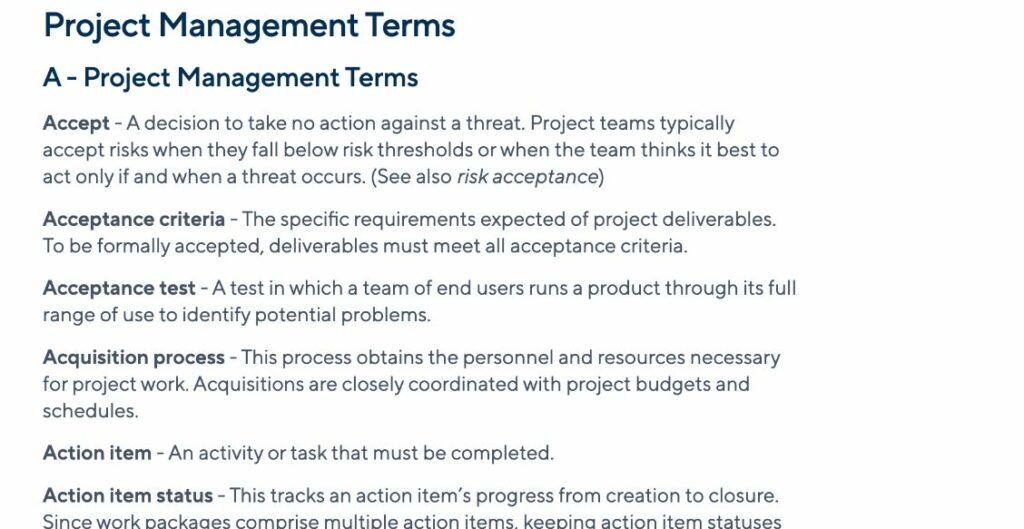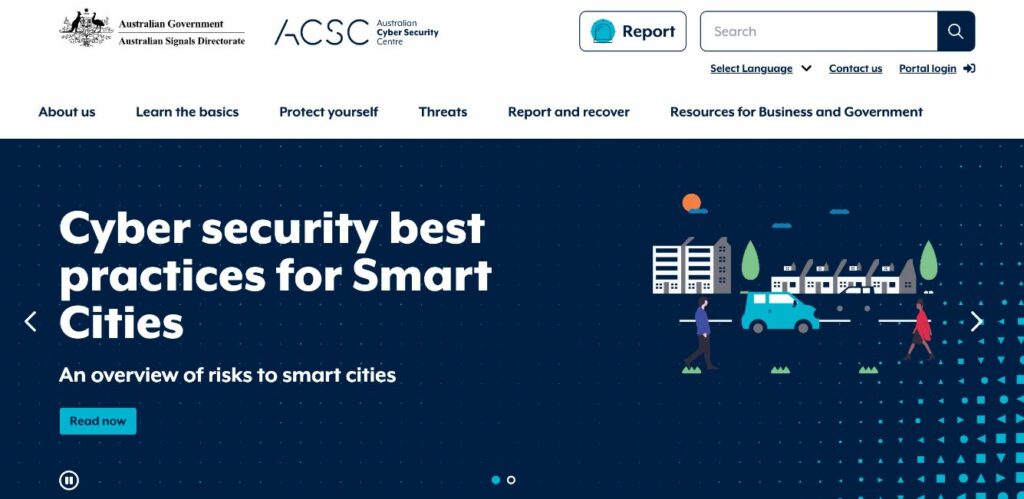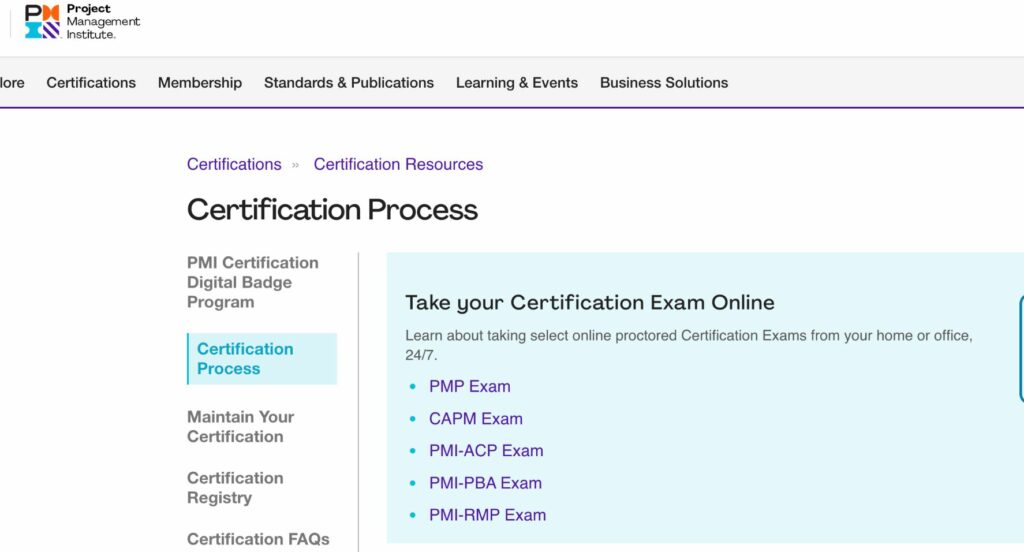IT project management plays a critical role in today’s business world, as organisations rely heavily on technology to achieve their goals efficiently. The project managers ensure that tech-related projects have successful outcomes, helping their business stay competitive in a rapidly evolving market.
It’s an incredibly in-demand and satisfying role, and in this article, we’ll be exploring 5 simple steps to help you become an IT project manager — even if you have no experience with project management methodologies.
Key Takeaways
- An IT Project Manager leads and plans tech projects to meet budget, schedule, and stakeholder requirements.
- It’s important to familiarise yourself with project management methodologies and terminology, as well as an IT field that interests you.
- You can gain IT experience through an entry-level role, and increase your chances of becoming a PM with a relevant certification.
- Networking with professionals in your industry and taking a PM course can give you a major advantage in a job search.
What is an IT Project Manager?


An IT (Information Technology) Project Manager, sometimes referred to as a program manager, is a team leader responsible for managing and planning technology-related projects, ensuring they’re completed on time, within budget, and to stakeholder satisfaction. They’re also in charge of creating and maintaining a productive work culture and environment within their company.
A Project Management Office (PMO) is a department or team within an organisation that sets and maintains project management standards, processes, and governance. The PMO provides support and guidance to project managers, manages project portfolios, and ensures that projects align with the organisation’s strategy and goals.
Are Agile Coaches and Scrum Masters considered Project Managers?
No, agile coaches and scrum masters are not considered project managers; their roles focus more on facilitating and coaching team members rather than overseeing an entire project’s phases, processes, and coordination.
More importantly, these roles are specifically created to focus on Agile project management, whereas project managers are typically trained in multiple methodologies and project plans, such as the waterfall approach.
How easy is it to be a project manager if I already work in Information Technology?
Becoming an IT project manager is relatively straightforward if you already work in IT, as it provides you with technical expertise and knowledge of the industry. However, you must possess specific skills such as leadership, effective communication, and organisation to branch into project management. On average, this may take you 5 years with job experience, and 3 years with a relevant degree.
IT certifications can also take several years of training and on-the-job experience to achieve. Obtaining a project management certification can demonstrate your competence and enhance your career prospects, especially when partnered with your existing skills and experience with technology.
Typical responsibilities for IT Project Managers
- Defining project scope, goals, and deliverables in collaboration with stakeholders.
- Handling administration tasks, such as project scheduling, creating budgets, and managing resource allocation plans.
- Leading and coordinating project teams, including technical staff, vendors, and contractors.
- Monitoring project progress, identifying and mitigating risks, and troubleshooting issues.
- Overseeing each project phase, such as the design, development, testing & risk assessment, and deployment stages.
- Communicating project status updates and presenting reports to stakeholders.
The average salary of an IT project manager in Australia
According to Seek, the average annual salary for an IT Project Manager ranges from $120K to $140K. It’s an incredibly lucrative job with plenty of opportunities for further growth in an already in-demand field.
Here are the 3 highest average annual salaries for IT Project Managers based on location:
- Sydney, NSW: $130K
- Melbourne, VIC:$125K
- Brisbane, QLD: $125K
Another big bonus of being an IT professional is the opportunity to work from home (WFH) or be in a flex (hybrid) position. Removing commute time from your schedule can make a huge difference to your quality of life.
5 Steps to become an IT Project Manager if you’re not already working in project management
If you’re interested in becoming an IT project manager but don’t have any prior project management experience, it can be a daunting task. However, it’s not impossible. Let’s look at five steps you can take to become an IT project manager, even if you’re starting from scratch.
1. Familiarise Yourself with PM Terminology and Methodology
Understanding project management terminology and methodology is essential for aspiring IT project managers as it provides a common language and framework for planning, executing, and controlling projects.Knowing the typical methods and language of IT projects allows you to communicate effectively with stakeholders and team members, manage project risks and constraints, and deliver successful outcomes within time and budget constraints.
It’s equally critical to have the foundational knowledge of project management methodologies and terminology, as it will significantly increase your chances of successful product delivery.
Terminology


Project management terminology provides a standardised language and framework for project management. This enables the project manager and project team to communicate effectively, understand project requirements, identify potential issues, and develop strategies to mitigate risks and deliver successful outcomes.
Methodology
Project management methodology is essential for managing projects effectively and efficiently, providing a structured approach to project planning, execution, and control. It enables project managers to define clear project objectives, allocate resources, identify and manage risks, and deliver successful outcomes within the constraints of time, cost, and quality.
2. Decide on a Focus Area in IT


Information Technology encompasses a broad range of areas, including:
- Cyber security
- Development
- Implementation
- SAAS (Software-as-a-Service)
- ICT
- Support
Cyber security is concerned with protecting networks, systems, and data from unauthorised access. Development involves designing, building, and testing software applications. Implementation is the process of installing and configuring software or hardware solutions, while SAAS refers to cloud-based software delivery models. ICT focuses on the use of digital technologies to communicate, process, and manage information. IT Support includes providing technical assistance to end-users to ensure the smooth running of systems and resolving an issue as it arises.
3. Choose an area of IT that interests you most
Choosing an area within the IT field that interests you has a significant impact on your job satisfaction, motivation, and career growth. Being passionate about your work can drive you to learn and improve continuously, leading to a more fulfilling and rewarding career.
Focusing on a specific area allows you to develop deeper expertise and become a valuable asset to your organisation. If you’re looking for a career change within the world of IT, it’s best to pick an area that has requirements with relevance to your interests and previous experience.
How do these areas of IT project management differ?
- Cyber Security. With the increasing frequency and severity of cyber-attacks, the demand for cyber-security professionals is growing. This field requires constant learning and upgrading of your skills to keep up with the latest technology and emerging threats. Having strong analytical and problem-solving skills is also a necessity.
- Development. As industries across the globe are demanding software solutions for their practices, there’s a significant need for software development. This field requires you to keep up with emerging technologies, products, and programming languages to meet market demands. Experience with popular programming languages, such as Java, Python, or JavaScript, is essential.
- Implementation. Implementation is critical for facilitating productivity and efficiency for all types of businesses, and requires a deep understanding of solution infrastructure and integration with existing systems. This field demands expertise in various technologies and services, strong problem-solving skills, and the ability to manage multiple tasks simultaneously.
- SAAS. SAAS is a rapidly growing field, providing businesses with flexibility and scalability. This field requires expertise in cloud platforms such as AWS, Azure, or Google Cloud. Additionally, you’ll need to stay current with emerging trends and technologies, and have strong problem-solving and communication skills.
- ICT. ICT provides businesses with the tools and technology to communicate and collaborate effectively, streamline processes, and improve productivity. This field requires strong technical skills, communication skills, and problem-solving abilities, along with adaptability for changing technologies.
- Support. Providing technical support to end-users is critical for systems to run smoothly. You’ll need experience with troubleshooting and problem-solving technical issues, alongside strong communication and customer service skills to effectively guide and interact with end-users.
4. Start with an Entry-Level Role
It’s all about getting your foot in the door. Potential entry-level roles for a career in IT project management include Project Coordinator, Junior Project Manager, or Quality Assurance Analyst. These roles typically involve supporting a senior project manager in various tasks such as scheduling, communication, documentation, and monitoring project progress.
You could even become a contract IT professional and plan small-scale projects for individual clients. This shows an affinity and drive for project management.
Gaining hands-on experience in project management allows you to learn and apply project management methodologies and tools in real-world situations, which will help you advance to higher-level roles in the future.
5. Get Certified in Project Management


If you’re looking to advance up the ladder to a project management system as soon as possible, then earning a Project Management Professional (PMP) certification is something you should consider. It will increase your chances during a job search, give you a higher earning potential, and improve your project management and leadership skills.
PMP certification is globally recognised as a standard of excellence in project management and demonstrates your commitment to the position, as well as your ability to schedule and manage projects effectively.
Overview of the PMP certification process
The PMP certification process has several steps, including meeting the eligibility requirements, completing an application, preparing for the exam, and successfully passing the exam.
For the standard PMP certification, eligibility requirements include:
Education requirements
- High school graduate certificate or associate’s degree (or equivalent)
- Bachelor’s degree
- 35 hours of project management education training or CAPM® Certification
Experience requirements
- 60 months experience leading projects (with a high school diploma, associate’s degree, or equivalent)
- 36 months experience leading projects (with a bachelor’s degree)
- 24 months experience if you’re a graduate of a GAC program
The exam covers a broad range of project management topics and consists of 200 multiple-choice questions. Passing the exam requires a deep understanding of project management concepts, tools, and techniques, as well as effective exam preparation strategies.
How do I get certified in Project Management?
You’ll typically need to meet eligibility requirements, complete a certification application, and then prepare and subsequently pass an exam.
Different certification programs may have different eligibility requirements, exam formats, and preparation strategies, so it’s crucial to research and select a program that aligns with your career goals and interests.
Do I need to get certified?
It’s not absolutely impossible to get a project management position without the completion of a PM certification, but it is going to be a much more challenging and prolonged journey that limits your options when searching for jobs.
In most cases, employers will strongly prefer a project manager with a relevant certification. Certification also demonstrates a commitment to the responsibilities of this job type and a willingness to invest in ongoing learning and development.
Without this attribute, you’re likely to have a much harder time standing out in a competitive job market or demonstrating your knowledge and skills to potential employers.
Pro Tip: Network with other IT Project Managers throughout your career


We’ve all heard the saying, “it’s not what you know, it’s who you know”. That applies in practically every industry, and IT is no exception.
Networking is essential for career advancement, helping people connect with like-minded professionals, gain insights into their industry or field, and learn about job opportunities that may not be publicly advertised.
Building relationships with colleagues, mentors, and industry leaders can also present unique opportunities for gaining valuable feedback, guidance, and support. By expanding your network and building professional relationships, you’ll increase your visibility and credibility within the IT industry.
Tips on how to build a professional network in IT Project Management
Here are some tips to help you develop and strengthen your professional connections within your industry.
Attend industry events and conferences
Attending industry events and conferences is a great way to connect with like-minded professionals, learn about the latest trends and technologies in your field, and gain insights into the best practices for project management.
Join professional organisations and online groups
Joining professional organisations and online groups can provide you with access to a wider network of professionals in your field, as well as opportunities for learning and development. You can connect with others who share your interests and goals, participate in discussions, and access resources and information.
Seek out mentorship from experienced IT Project Managers
Mentorship from experienced IT professionals and project managers will give you valuable guidance and support as you navigate your career path. By finding a mentor who has experience in your area of interest, you can gain insights into best practices, receive feedback on your work, and benefit from their connections.
What’s Next?
In today’s business world, IT project management plays a critical role in ensuring that organisations effectively manage and deliver complex tech projects on time and within budget.
With a growing demand for skilled project managers, pursuing a career in IT project management can offer a rewarding and engaging job with opportunities for advancement and professional development.
By building a strong foundation of knowledge, skills, and experience in project management, you can position yourself for job security and long-term success in this exciting and dynamic field.
If you’re ready to become a certified project manager and advance in your career, Priority Management offers nationally-recognised training for Australian professionals. With over 30 years of experience and corporate partners across the country, our coaches know how to prepare you for planning and managing real-world projects.
We have a range of project management courses to suit any level of experience, and flexible instructors who can tailor the training to suit your professional goals.
Our courses are available to take online or in person. Get in contact with us today and become part of the Priority Management community!
